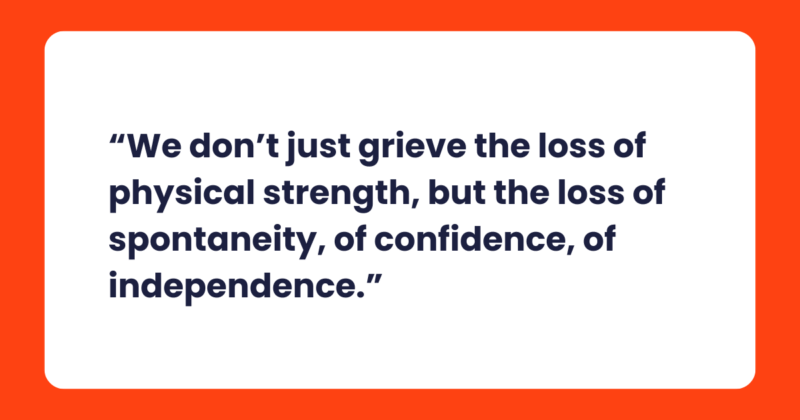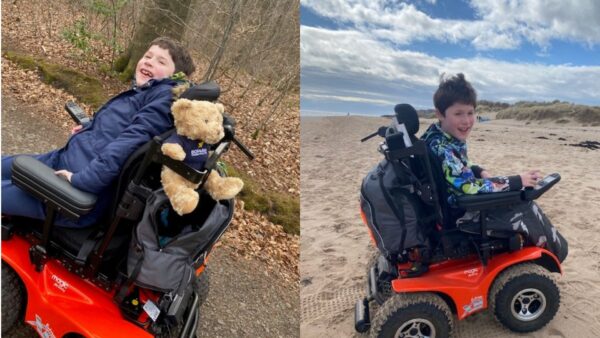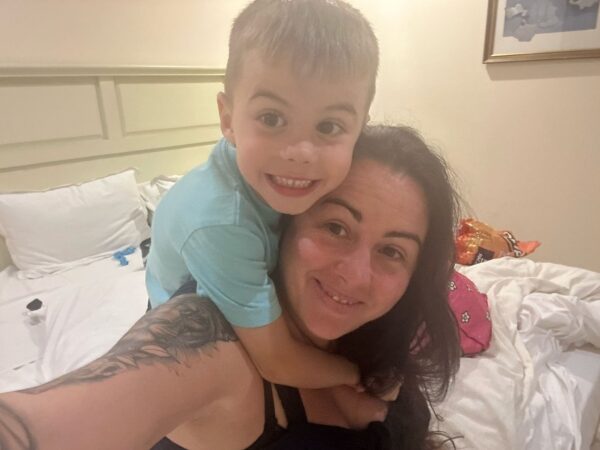This oculopharyngeal muscular dystrophy (OPMD) awareness day, Bryan shares his journey living with OPMD, how over the years his involvement in the charity has grown along with the development of the OPMD group, and why awareness days for the rarer muscle wasting conditions are so important.
“Growing the OPMD community has helped me with my own condition progression” – celebrating OPMD awareness day
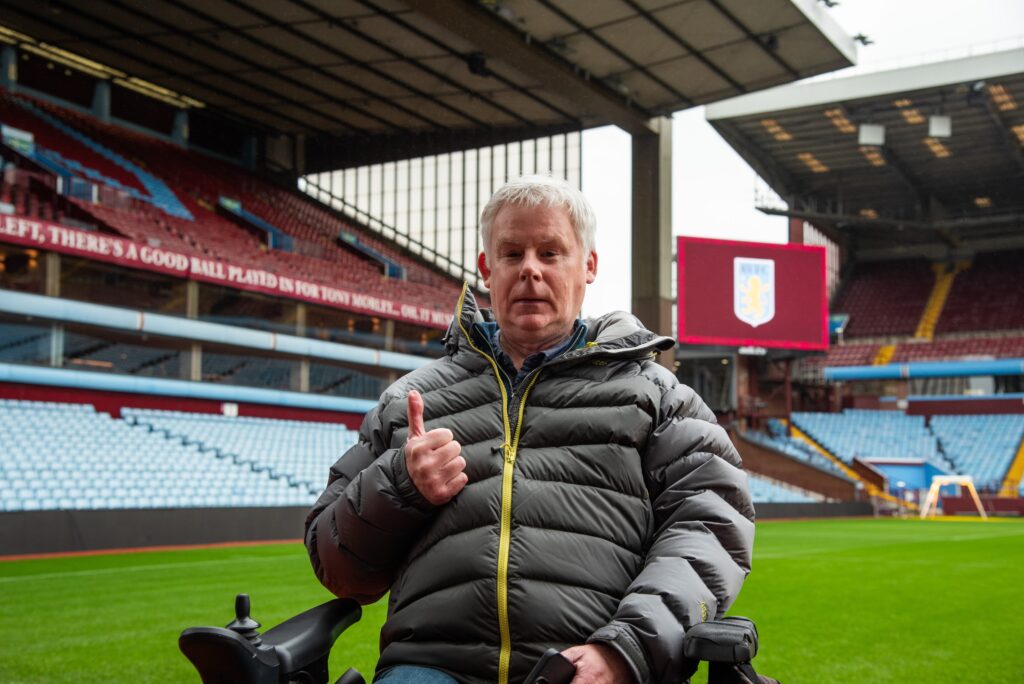
Photo: Aston Villa Football Club
Although I wasn’t diagnosed with OPMD until I was 46, the progression has impacted me significantly over the last decade, and I became a wheelchair user last year. My wife is my full-time carer and she has multiple sclerosis (MS). So, day-to-day life can be challenging, but we have an amazing circle of family and friends, including two fantastic sons and their partners, and we are blessed with two wonderful granddaughters. We’ve a lot to be grateful for, and at 64, I still lead a very active lifestyle attending concerts, musicals, and my beloved Aston Villa football club.
Learning to accept progression
My sister, Christine, also had OPMD. Watching her condition deteriorate was very difficult . The whole family felt helpless, and, I realised I needed to do all I could to raise awareness of the condition to help others whilst also helping myself.
The three main symptoms of OPMD are droopy eyelids (ptosis), swallowing difficulties (dysphagia) and limb weakness. My symptoms didn’t start showing until I was about 55, but since then I and my wife, Catherine, have had to make significant lifestyle changes. I’ve had several surgeries to improve my droopy eyelids so I can see better. I have to be extremely careful with food as my dysphagia means I can choke very easily. Several years ago, I choked really badly and my wife saved my life by doing abdominal thrusts. I’m lucky to have an excellent dietician and speech and language therapist, who have helped me work on ways to reduce my choking risk. Avoiding certain meats, like steak, is important, as well as cooking food for longer to make it softer. I also have to be mindful to remove the skin of certain fruits and vegetables, and in general focus on taking small, bite sized mouthfuls that I take time to chew.
Becoming a full-time wheelchair user last year was a particularly difficult stage of progression, but the risk of falls was increasing as my mobility declined. It was a big change but my independence and confidence has really improved and I am very heartened by wheelchair accessibility and improving provisions for people with disabilities at venues.
Supporting others with OPMD through Muscular Dystrophy UK
I first contacted Muscular Dystrophy UK in 2012 when my sister was really struggling with her condition and her care was very poor. They were so helpful and played a vital role in raising awareness of the difficulties she was facing. I was supported in becoming more actively involved with the charity.
This also led to working with the local CCG (Clinical Commissioning Group), a lead GP and End of Life Palliative Care Consultant to develop better coordinated care and awareness of muscular dystrophies. Access to cough assist machines was particularly important to me in memory of my sister and I was pleased to campaign for better provisions in the West Midlands.
I was very pleased to be invited to co-chair the West Midlands Regional Neuromuscular Network with Professor Tracey Willis back in 2017 which meets every three to four months with medical experts in the neuromuscular field. We also liaise with the wider healthcare sector and commissioning teams as well NHS England, GPs and politicians who have the power to create positive change.
I was also keen to fundraise in memory of my sister and thought a 500 miles walk fundraiser across 12 months, whilst I was still ambulant, would be a great challenge. It led to further ‘Barn Bash’ music fundraisers at our dear friends farm.
Founding the oculopharyngeal muscular dystrophy group
I and others developed the charity’s OPMD support group in 2015, and I consider it an honour to still be actively involved nine years later. Before this, I’d never met anyone outside my family who had OPMD, and as one of the rarest forms of muscular dystrophy, this is the case for many people with the condition.
There’s now between 20 and 30 of us who meet online once a year to have an informal chat about any issues we’re struggling with, share our knowledge and learn from each other’s experiences. We also arrange for different medical professionals to do talks at each meeting about topics relevant to the OPMD community. This years’ meeting is being held today, on OPMD awareness day, and will feature talks from a neuromuscular physiotherapist, care advisor, and a Muscular Dystrophy UK advocacy representative.
It’s been amazing to build relationships in the community so that individuals with OPMD and their families have somewhere to turn to all year round if they need support or simply want a chat. For several years I have also been a MDUK peer support volunteer. The programme is such a beneficial support mechanism and I love being part of it and supporting others either newly diagnosed or living with the condition.
Awareness days create space for people to be heard
It’s great that more awareness days for lesser-known forms of muscle wasting conditions are being created. For people outside our community, it’s an opportunity to spread the word about the different symptoms and challenges we face. For those of us with OPMD, it helps us keep up to date with changes in the community, such as how research into more common forms of muscular dystrophy could benefit us in the future.
Learn about our Oculopharyngeal muscular dystrophy support group here.
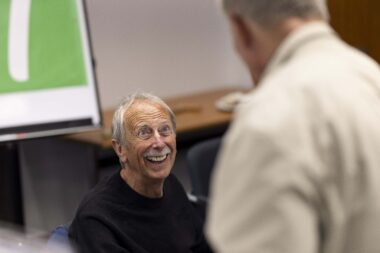
Join our informal support group for people living with, and affected by, oculopharyngeal muscular dystrophy (OPMD).
